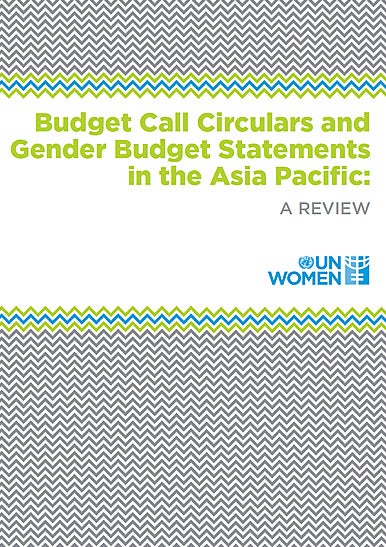
Budget Call Circulars and Gender Budget Statements in the Asia Pacific

The terms of reference for the assignment note that more than 90 countries have engaged ingender-responsive budgeting (GRB) worldwide, of which more than a quarter are found in theAsia Pacific region. The source cited for this estimate in fact refers to both Asia-Pacific and Arabstates. It lists the relevant countries as follows: Afghanistan, Bangladesh Cambodia, China, Egypt,Fiji, Indonesia, India, Jordan, Marshall Islands, Mongolia, Morocco, Nepal, Pakistan, Palestine,Papua New Guinea, Philippines, Samoa, Sri Lanka, South Korea, Syria, Thailand, Tunisia, Vietnamand Yemen. The number for Asia Pacific is thus slightly less than 22 (quarter of 90) as this listincludes several Arab states. However, the list excludes some further countries – Australia,Bhutan, Japan, Malaysia, Maldives, South Korea and Timor Leste – that have done GRB work. Theexclusion of these countries is, in part, explained by the fact that UN Women does not have apresence in all countries in the Asia-Pacific region.
The review focuses on budget call circulars and gender budget statements. The terms of referencecall for a “comprehensive review of the different ways in which governments have engenderedthe budget circulars/call circulars and the frameworks they have adopted for the gender budgetstatements.” The review was to do this, among others, by identifying what information is, andis not, provided in the different frameworks. To the extent possible, the review was to assessthe extent to which the use of “engendered” call circulars and gender budget statements hascontributed to improved gender equality outcomes.
Virtually all countries should have a budget call circular or equivalent document that instructsgovernment agencies how to submit their annual budget bids. However, not all call...